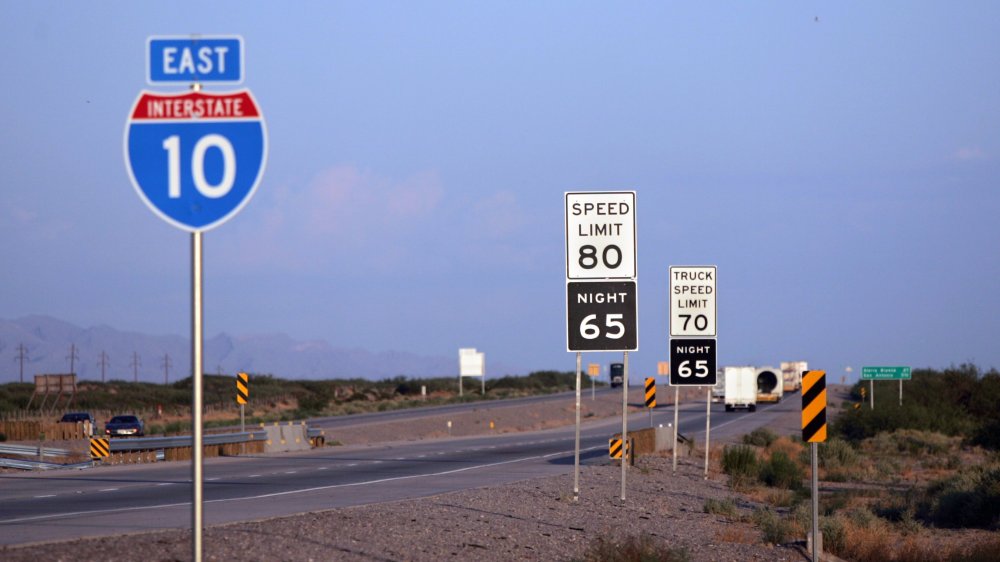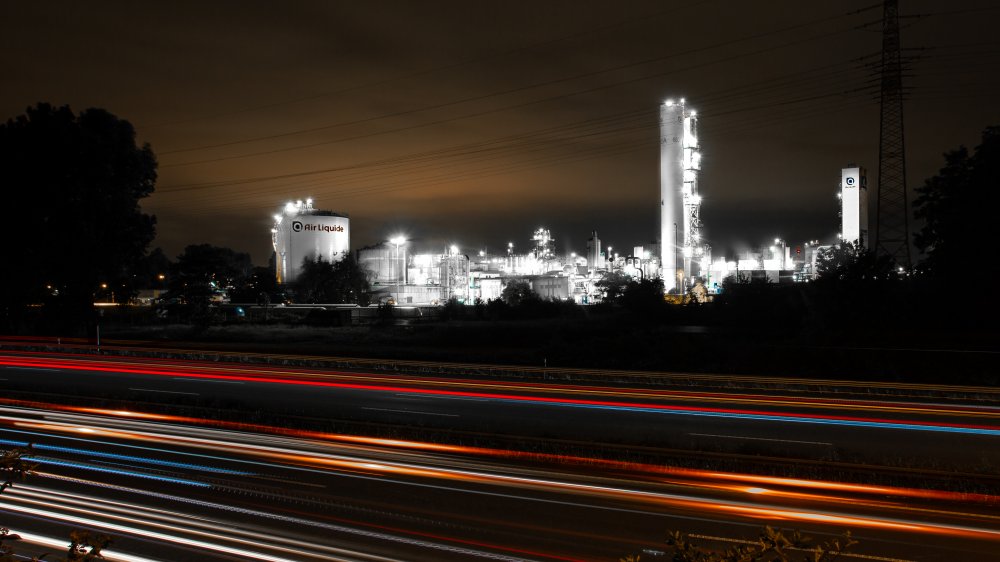What Is The Fastest Speed Limit In The United States?
No matter where you drive, you'll always find four kinds of drivers: the speed demons, the slow pokes, the normal people just trying to get where they're going ... and, of course, the slow pokes who, without warning, suddenly become speed demons as soon as you try to pass them in the left lane. You know who you are.
If driving fast is your thing, though, which of the fifty United States boasts the highways which will give your lead foot an excuse to burn rubber?
Take a guess. A big guess. If you're thinking Texas, well, according to the Insurance Institute for Highway Safety, a nonprofit organization, the Lone Star State indeed boasts rural highways where you are permitted and encouraged to hit 85 miles per hour. Now, while that's quite fast, it's worth mentioning that a number of other states come pretty close, with Montana, South Dakota, Nevada, and Wyoming all possessing 80 MPH limits on certain highways, provided that said roads are big and open enough (I.E., not near any buildings) that it's generally deemed safe to move at such speeds. That said, Texas' speed limits on other types of road, such as urban highways and more, also tend to ring in higher than other states dare go, with limits up to 75 MPH.
However, you should know that speed limits aren't quite what you think they are.
Speed limits, who needs 'em?
Everybody complains about speed limits, but accepts them as a necessity. Are they really, though?
Now, this is a big subject to unpack. For one, the ritual of handing out of exorbitantly-priced traffic tickets, as a way of raising funds for government programs, has come under fire in recent years, as the Atlantic details, since these fines disproportionately impact lower-income populations in dire ways. Secondly, the fundamental way that speed limits are set is totally different from what you might think. Rather than establishing a speed based on whatever some high-and-mighty Joe Schmo deems safe, as Priceonomics explains, speed limits are set by traffic engineers based on observation of what speeds people are already driving at: they track the approximate speed that 85 percent of the drivers currently use on that road (regardless of what the sign says) and then set the speed limit at that very number. Essentially, speed limits actually do almost nothing to control traffic speeds. People drive how they drive.
Thus, have been proposals to eliminate speed limits altogether, on certain roads. After all, the German autobahn does it, right? And in 2019, following problems with California's high-speed rail development, the L.A. Times reported that Sen. John Moorlach proposed that California follow suit, by adding two lanes with no speed limits. If this proposal were to pass, then California would technically claim Texas' throne for having the fastest speed "limit" in the country.

